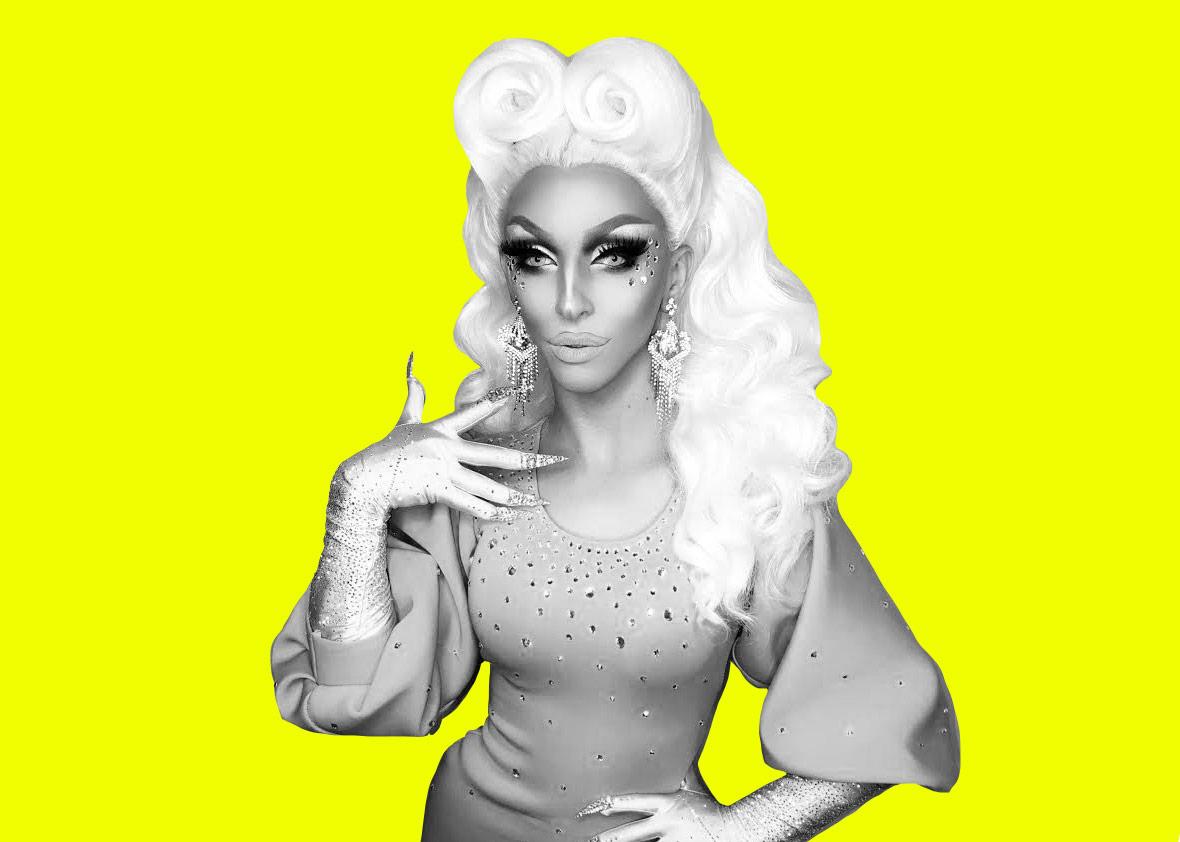This season on Working, we’re taking a look at some LGBTQ-specific jobs.
When Miz Cracker, a New York–based drag queen, showed up at Slate’s Brooklyn studio on a recent Friday evening, she was already sheathed in the shimmering dress she would be wearing to her show that night. It was an outfit she’d made almost entirely by herself: She had, as she tells us in this episode of Working—which you can listen to via the player above—cut and sewn the fabric, applied the rhinestones, and even styled her elaborate white wig.
“I’m very inspired by Flash Gordon and retrofuturism in general,” Miz Cracker, who is also a regular Slate contributor, tells us. “Whatever people in the ’30s through ’40s imagined that the future would look like, that’s my thing.”
While building those looks takes up a significant part of her days, she also performs almost nightly at venues around the city. For her, drag is very much a full-time job, but that doesn’t exactly mean it’s a sustainable way to make a living. “The point of drag is to do too much. However much money you’re making, you spend more than that,” she says. “As adults, everything has this purpose to it, and drag doesn’t. [It’s] unnecessary. So we do it to an unnecessary degree.”
That commitment to overcommitting shines through when Miz Cracker describes the structure of her days. It’s there, for example, in the thought she brings to applying her makeup each day—a process that, as she tells it, reflects influences drawn from the various corners of New York’s drag community. But it’s also present in her willingness to go to and from gigs with her looks fully in place. “I like to take the train and walk the street, because I want as many people to see this as possible to make it worth it. Because, like I said, I’m not making money,” she says.
Ultimately, Miz Cracker suggests, the most important rewards of her profession aren’t financial. “Drag affects people,” she says. “That’s what’s rewarding about drag. Creating something beautiful in a world that is always coming apart. What happens to a person when the most beautiful part about them—the people that they love, the way that they love—is called ugly? What kind of person results from growing up under that condition? A gay person. Whoever you are dating as a gay man is a man who was told that the best part about him was the worst part about him. My generation—and generations after me still and behind me—will never heal from that way of growing up. But for an hour and a half at a goddamn drag show, we forget that. And being the way we are is fantastic.”
To find out more about Miz Cracker, visit her website.
And in a Slate Plus extra, Miz Cracker discusses the art of lip-syncing. If you’re a member, enjoy bonus segments and interview transcripts from Working, plus other great podcast exclusives. Start your two-week free trial at slate.com/workingplus.
Podcast production by Benjamin Frisch.
